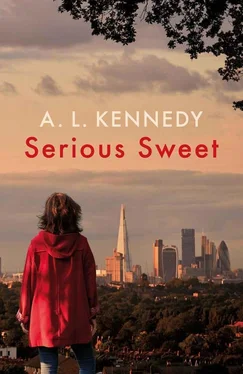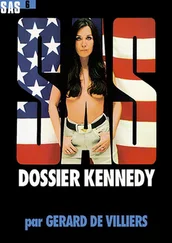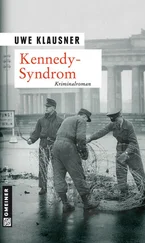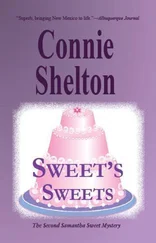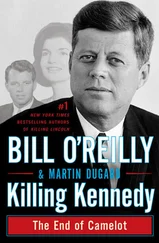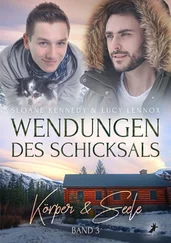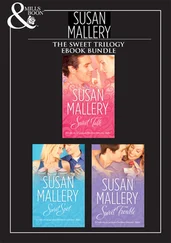Corwynn had dropped his teaspoon and retreated from her, left her cold-handed, as he scrambled about after the thing, as if it were made of platinum, or some family heirloom beyond price, while telling her, ‘They’re all watching and thinking I’m a fool, I’m sure. And you’re …’ His face had flushed with effort and possibly shame, while his hair was disturbed — but not ginger — was ruffled as he surely would not have wished and he spoke on his knees, his chin almost level with their saucers. She’d thought at that point, his height is in his legs, isn’t it? He has that body, which is slim and all wires and tightness, but not long. It’s his arms and legs that make him seem big — they give him the reach and the height and that speed. She considered his legs, as if understanding his dimensions wouldn’t make her …
You’d be worried that if you really studied them you’d want to touch him a lot and that didn’t seem what he would want, or not yet.
You don’t touch wild animals, they take it badly.
And I was trying to look just sociable and normal and not insane about his legs.
So I listened very hard when he spoke and thought his voice might be drier than I’d expected. But it was him.
And it made me want to touch him, too.
Once he’d captured the spoon, he’d stood again and fussed at the twin patches of mainly theoretical dust on his trousers where he’d knelt. ‘Oh, dear. Sorry. I should have thought. I’m such a …’
And she’d taken his hand for the third time and said something she couldn’t remember afterwards. She could only recall his glance at her and the horror that coloured it and also this despair and a type of exhilaration. And finally he opened out a smile, a boy’s summery smile — lots of clear brightness, lots of racing and heat.
He’s not simple, Mr August. He’s all kinds of things, all at once, is Mr Jonathan Corwynn Sigurdsson.
He’d blinked and his mouth had worked for a few moments before he produced, ‘Well … It’s not really, because … If you think so, then. Yes … I don’t … Thank you.’ His other hand had placed the rogue teaspoon beside his cup. He’d checked his watch openly and twitched. ‘I do have to, I do …’ And then his fingers had been decisive and had laced between her own and had fastened in snug and hard and he’d leaned forward to be closer. ‘If you knew me by looking … This will sound extremely …’ His scent was here: a harsh brand of soap and self-confident cloth and a vague musti-ness — no cologne, no definable choice made beyond this old-fashioned, punishing soap the name of which she’d forgotten. She’d breathed in to gather as much as she could, in case she never saw him again.
I was declaring him a good thing and therefore assuming he’d soon be gone.
Gone in the way that doesn’t come back.
‘If you knew me by looking …’ He’d winced quickly, but his fingers stayed certain. ‘In your letters, when you wrote, you said that I was, you used the word — the word was … No, it’s all right, it’s perfectly — I’d be foolish to ask … I have to go. I’ll call. Later. I mean … I have to.’ He shook his head.
His eyes had tried hers for an instant and had appeared to be ready for some kind of blow. ‘Beautiful. You said. You used that word.’
And his hand had snapped away then, as if he had scalded himself and he was standing back and picking up his briefcase and no more to be said and no attempt to face her again and then he was out and away and striding and nothing of him remaining but a warm shudder in the light.
She’d abandoned her coat and followed, sort of kept a guard along behind him as he paced, then trotted, then pelted through the shadowy narrows of White Horse Street and out towards the tall, narrow slot of sun and sky over Piccadilly. Then he was fording the swell of upmarket pedestrians and then plunging into the traffic, crossing the road in its two, equally busy instalments. Meg had worried he was dashing too unwisely. She’d worried he’d turn round and see her. But he’d not looked back, had only sprinted into the park. He was, as she might have told him, beautiful as he ran.
As he ran away from me.
I thought that was it.
Sorrysorrysorrysorry.
Walking back to the café, paying the bill, avoiding the amused concern of the waiters … it had all made her want to cry.
I thought he wouldn’t write again.
I knew he wouldn’t call — it would make him too tense. And he hadn’t given me his number and that was probably a cause for concern …
The way he’d stared at her.
But, after three letterless weeks during which she couldn’t exactly eat — not really — or dream without being unhappy, he had sent her an envelope full of sorrysorrysorrysorry for making her wait, because he had been dithering over how to phrase things.
Only then he didn’t phrase anything much — it was a very short letter, more a note.
But sorry again and here was his mobile number and I should call. Or texting would be better because he often would be busy. But I might text soon if I wanted — soon or sooner than that.
Being funny for me.
And I didn’t forget that before he ran, he kissed me.
He did.
Here it is.
There are two men on a crowded Northern Line Tube train. Both are dressed stylishly in jeans and shirts a little too young for their age. They have well-tended beards and moustaches and shaven heads. One man carries a young pug dog which is wearing a small neckerchief and a soft leather harness. The man is holding the dog snug and high, protective, clearly enjoying its newness and affection.
Because the carriage is so crowded, the dog cannot help but peer out, over-close to a middle-aged woman’s face. She is smiling in response and petting the dog’s ears. Both its owners tell her how brave it is being — it does seem only calm and curious and contented, despite the crush. They talk about introducing their dog to other dogs and about training sessions for good behaviour and about a day-care centre where they leave him when they go to work. Although they don’t like to be parted from him, they feel he should get used to novel experiences and people.
The dog is perfect, cherished, glances about himself with an air of security.
As passengers ease past it and out, or insist themselves into the crowd already on-board, the conversation continues. It is something cheery to be overheard as a mass of individuals undergo a mildly gruelling experience, pressed together.
Eventually, though, the chatting wanes and the men simply murmur between themselves and seem glad about their dog and being here and now and together. The woman withdraws into being a stranger again, her face becoming neutral and turning to examine the slide of the platform as the next station finds them, then slows and then stops alongside. For a moment she seems sad. She is perhaps considering that the men have this dog as their son and that they love him and that dogs do not live very long, not nearly as long as children are supposed to. It may be that she is surprised by how willing they seem to risk being very unhappy.
Meg was in a pub when her phone rang. ‘Hello?’
She wasn’t there for any terrible reason, it was only that the other places — shops, cafés, sandwich bars — they’d all looked too steamy and sticky and claustrophobic and someone can be in a bar, can sit on a stool in a bar, and still drink an orange juice and lemonade.
‘Hi, yes it’s …’ The sound of him flared in her, the music, the breath — her anticipation that something must be wrong, or why else would he call … ‘It’s you, Jon, yes. I know. I can recognise your voice. Probably always …’ And she tried to keep on talking, because then the bad news would not be delivered.
Читать дальше
